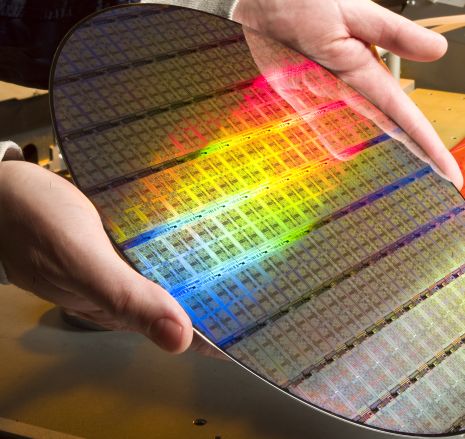

IBM has reacted to Intel’s ambitious plans for data centre growth by adopting an ARM-like approach with its Power chip architecture.
Big Blue will licence its Power processors to other companies, enabling them to build their own servers, networking systems and storage appliances based on IBM’s architecture, company officials said 6 August.
As part of the effort, IBM is working with the likes of Google and Nvidia to launch the OpenPower Consortium to help create a hardware and software ecosystem around the Power architecture as it looks to give organisations an alternative to Intel’s x86 chips in cloud computing and hyperscale data centre environments.
The move comes as trends such as the cloud, big data, analytics and mobility are fuelling rapid changes in the data centre, where demand is growing for more powerful, dense and highly energy-efficient servers to fill out organisations’ scale-out environments.
It also comes during a difficult time for IBM’s Power business, which saw revenues in the second quarter fall 24 percent. However, company officials note that the business continues to beat other Unix server vendors – in particular Hewlett-Packard and Oracle – in the space and that IBM is looking to expand Power even more in the Linux market. In addition, IBM also expects the Power 7+-based systems to perform well as the year goes on.
Now the company is turning toward businesses that are running large cloud data centres that house huge numbers of servers. It’s an area that’s being fiercely contested by the likes of Intel, Advanced Micro Devices and ARM and its various chip partners, including Calxeda, Marvell Technology and – eventually – AMD and Samsung.
With Power, IBM brings another option that comes with a data centre heritage, rather than architectures with a history in the client market, according to Tom Rosamilia, senior vice president of IBM’s Systems and Technology group. Through the OpenPower consortium, IBM will licence its Power intellectual property to companies that want to use it in servers for cloud data centres.
“Up until now, IBM primarily used the Power design in its own servers,” Rosamilia wrote in a post on IBM’s blog. “This new initiative makes it possible for cloud services and their technology providers to redesign the chips and circuit boards where computing is done – optimising the interactions of microprocessors, memory, networking, data storage and other components. As a result, they can get servers that are custom-tuned for their applications.”
The OpenPower group, which reportedly will focus on the upcoming Power 8 technology, initially will include IBM, Google, Nvidia, Tyan and Mellanox.
“Combining our talents and assets around the Power architecture can greatly increase the rate of innovation throughout the industry,” Steve Mills, senior vice president and group executive for IBM’s Software and Systems unit, said in a statement. “Developers now have access to an expanded and open set of server technologies for the first time. This type of ‘collaborative development’ model will change the way data centre hardware is designed and deployed.”
One of the first efforts will be integrating Nvidia’s CUDA graphics technology into IBM’s Power ecosystems, according to IBM officials.
An Intel spokesperson said the company is confident that the efforts it’s making now in the data centre will create challenges for other vendors looking to muscle their way into the space.
“Data centres around the world today run on Intel architecture, so companies clearly recognise the business value Intel brings,” the spokesperson said in an email. “We don’t take these things lightly, but it’s important to remember that there is large and growing ecosystem around our technology. As we continue to innovate and offer custom alternatives, we believe it will be increasingly difficult for other architectures to compete.”
Page: 1 2
Deliveries of Telsa's 'bulletproof' Cybertruck are reportedly on hold, amid user complaints side trims are…
New feature reportedly being developed by Apple for iOS 19, that will allow AirPods to…
Binance BNB token rises after WSJ report the Trump family is in talks to secure…
After failed Amazon deal, iRobot warns there is “substantial doubt about the Company's ability to…
Community Notes testing across Facebook, Instagram and Threads to begin next week in US, using…